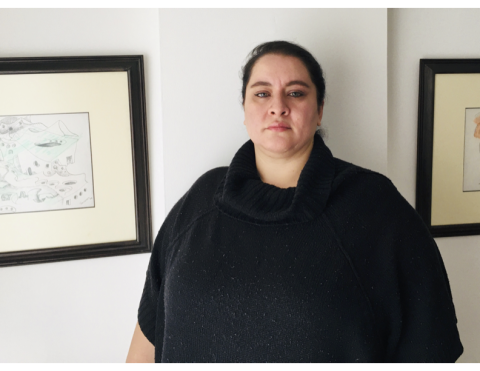Julia Morales Fontanilla
B.A. Universidad de Los Andes. 2006
Ph.D. University of California Davis. 2019.
Specializations
Medical anthropology; science and technology studies; anthropology of life and death; anthropology
of war; Colombia.
I am a critical feminist ethnographer with an interest in the political life and affective landscapes of
technoscientific practices in Colombia. I like to think about materiality, affects, senses, expertise,
bodies, violence, relations, and co-laboration. My work brings together cultural and medical
anthropology, science and technology studies, Latin American studies, the anthropology of war and
violence, the anthropology of death, and reflections on the narrative capacities of ethnographic craft
of writing.
At UVA I teach, among others: Introduction to Medical Anthropology; Anthropology of
Development and Humanitarianism; Science and Social Movements; Violence and Biomedicine; Sex,
Gender, and Culture. Currently, I am the director of the Anthropology Major concentration in
Medical Anthropology, Ethics, and Care. If you are curious about a degree in anthropology with a
focus on medical anthropology, I am the person to talk to.
My current book project explores dead bodies and medico-legal practices in the Colombian public
morgues and conceptualizes death, and life, in relation to biomedicine, forensic sciences and
practices, and the extreme violence of war. In my manuscript, entitled Necrolife: Encounters of Practice in
the Colombian Morgues, I ethnographically interrogate forensic practices in the morgues to probe the
material and epistemic making of dead bodies and death in Colombia and the political effects of that
making. The death narratives that compose the book are grounded in the practice of postmortem
examinations (autopsies) and are anchored in the extreme violence and the protracted war between
guerrilla groups, paramilitary armies, drug trafficking organizations, and the Colombian state that
forms the historical background of her research. My analysis contributes to discussions about
vitality, forensic knowledge, the making of evidence, the agency of objects, the anthropology of
death and life, and the anthropology of biomedicine in a context of war. The book also offers
evidence about the importance of the political and legal work done in the morgues in Colombia.
Two secondary parallel research projects on healthcare practices, their world making capacities and
affects, and the politics of death are ongoing. A first one, titled Guerrilla Healthcare: Improvising
Medicine in the Rainforest, interrogates how the left-wing guerrilla group FARC-EP trained their
members as medical practitioners, how they produced local medical techniques later adopted by the
medical service of the national army, and how they were able to establish a solid healthcare net. A
second one explores the health ecologies of the flower production industry in Colombia —the
second largest producer and exporter of flowers in the world. I am interested in finding the
networks of political and technoscientific relations that sustain the production and export of flowers.
My work has been published in the journals Journal of Latin American and Caribbean Anthropology;
Feminist Anthropology; Tapuya: Latin American Science, Technology, and Society, Corpo-grafías. Estudios críticos de y desde los cuerpos, Boletin de Antropologia.
